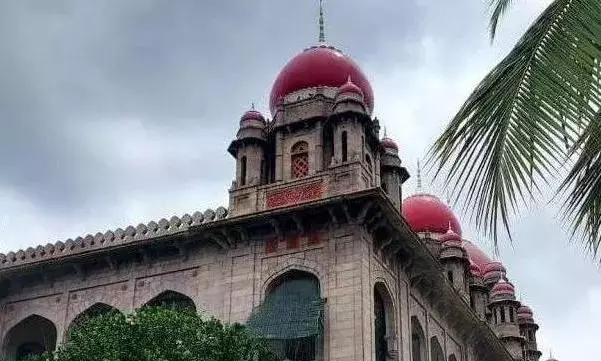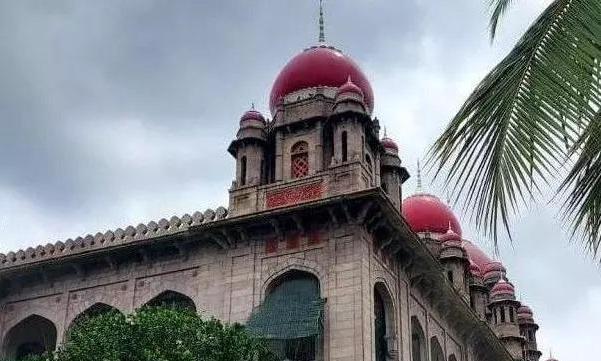
Hyderabad:A panel of the Telangana High Court, comprising Chief Justice Alok Aradhe and Justice J. Sreenivas Rao, dismissed an application filed by Kilari Anand Paul, president of Praja Shanti Party seeking to refrain members of the Legislative Assembly, who crossed floor after election, from attending the assembly session, participating in the legislative discussions and casting their votes. The petitioner contended that the members were elected on the BRS ticket and after elections they had joined the Indian National Congress (INC). It is the case of the petitioner that they have incurred disqualification under the Tenth Schedule of the Constitution of India. Recently, the panel set aside the order of a single judge mandating the speaker of the state legislative Assembly to dispose the application of disqualification of the BRS MLAs. Earlier, the single judge by an order on September 9 disposed of a batch of writ pleas filed by Padi Kaushik Reddy and others complaining that the inaction on the part of the speaker to deal with statutory appeals filed before him defeated the purpose of the anti-defection law. A single judge overruled the objection related to the maintainability of a writ plea against the speaker and entertained the writ petitions in a judgement of far reaching import. The single judge directed the speaker “for fixing a schedule of hearing (filing of pleadings, documents, personal hearing etc.) within a period of four weeks from today. The schedule, so fixed, shall be communicated to the registrar (judicial), High Court for the state of Telangana. If nothing is heard within four weeks, it is made clear that the matter will be reopened suo motu and appropriate orders will be passed”. State advocate general A. Sudershan Reddy, in his arguments, pointed out that such a direction could be a breach of the sensitive fence lines between the various constitutional power sources under the Constitution. He pointed out that a tight rope required constant balance and the impugned order was in violation of the said sensitivity. The panel set aside the time frame facet of the single judge. Effectively modifying the direction of the single judge, the panel, speaking through Chief Justice Aradhe, still required the speaker to expeditiously dispos of the grievance of Kuna Pandu Vivekananda and others. The panel also said that “reasonable time” would have to be derived from the facts of the case and the purpose of the statute that requires the intervention of the speaker. It was pointed out by the senior counsel on Thursday that the instant public interest writ petition itself is not maintainable as the petitioner is seeking the court to pass an order of disqualification against respondents and action with regard to disqualification has to be taken under the rules framed by the speaker in exercise of powers conferred by paragraph 8 of the Tenth Schedule to the Constitution of India viz., Members of Legislative Assembly (Disqualification on the ground of Defection) Rules, 1986. The panel after considering the rival submissions said that it has already directed the speaker to decide the disqualification petitions within a reasonable time. Until and unless the issue with regard to disqualification petitions is decided by the speaker, they cannot be restrained from attending the assembly session, participating in the legislative discussions and casting their votes. The panel accordingly dismissed the interlocutory application.
Caste survey: Plea challenges Gadwal collector’s direction
Justice Surepalli Nanda of the Telangana High Court took on file a writ plea challenging the direction of Gadwal collector in the conduct of the ongoing BC survey in the state. The judge required the authorities to respond by Friday in a petition where it is complained that the enumerators are insisting upon production of community certificates for Madasi Kuruva or Madari Kuruva community people. It is alleged that the collector directed the tehsildars and mandal parishad development officer (MDPOs) to insist on production of community certificates of persons claiming to be members of Madasi Kuruva or Madari Kuruva communities for their enrolment as such in the comprehensive door to door household survey for socio-economic, educational, employment, political and caste survey of Telangana State. Telangana Madasi Kuruva/Madari Kuruva SC Sankshema Sangam is the petitioner. It was the case of the petitioner that the community was being granted a Backward Caste- B certificate by the government, contrary to the constitutional presidential order listing the community as a Scheduled Caste community. The matter was taken up by the national commission of scheduled castes in which the chief secretary was summoned to determine whether the said community falls under scheduled caste category or backward caste category. Pending decision regarding the same, persons belonging to the community could not furnish any document to validate their caste status as yet. It was observed that the form through which the survey was being conducted provided a separate clause questioning whether the document to substantiate the claim of belonging to the said community was furnished at the time of conducting of surgery or not. The petitioner alleged that on the ground of non-production of the document, the caste of the persons was not being recorded by the authorities, which violated their right under the constitution of India. The petitioners sought a direction to the authorities to at least mention the name of the caste the persons belonged to, while separately specifying that the document to substantiate the claim was not produced. The petitioners alleged that the form itself provided for such an opportunity and the authorities not recording the caste of the persons on the ground of non-production of documents had violated their recognition of belonging to the said caste. As the survey is to be concluded by the end of this month, the judge directed the respondent counsel to seek instructions by November 29.
Irregularities alleged in allotment of 2bhl houses
Justice T. Vinod Kumar of the Telangana High Court took on file a writ plea challenging the allotment of 2 bhk houses at Kamalanagar 2bhk dignity housing colony, Yousufguda in Hyderabad. The judge was hearing a writ plea filed by Kandula Janaki and 45 others. The petitioners alleged that the district collector had allotted the houses to ineligible beneficiaries, bypassing due procedures, and claimed that it violated their fundamental rights. The petitioners also contended that the double bedroom housing scheme, introduced by the Government of Telangana in October 2015, is aimed at providing 100 per cent subsidized housing to the poor. The petitioners said that the alleged irregularities undermine the purpose of this transformative scheme, which is crucial in protecting rural beneficiaries from debt trap. It was also argued that the allocations were contrary to the GO dated November 26, 2015, issued by the state housing department. The plea seeks to declare the impugned allocations as illegal and setting aside the proceedings. The petitioners sought a direction to the authorities to conduct a fresh and transparent allocation process via a draw of lots, ensuring fairness and consideration of eligible applicants. The matter is posted for further hearing after three weeks.
Construction of Golnaka ramp challenged
Justice B. Vijaysen Reddy of the Telangana High Court took on file a writ plea challenging the actions of the Greater Hyderabad Municipal Corporation (GHMC) in proposing to construct a ramp in between the Golnaka-Amberpet flyover and Masjid E Mohd Ismail. The judge was hearing a writ plea filed by the Masjid E Mohd Ismail, represented by its general secretary. The petitioner alleged that GHMC’s proposed action will block free access of the public to the petitioner masjid from both sides as they would have no space to enter the masjid. The petitioner alleged that the actions of GHMC were highly arbitrary and violated the provisions of the Constitution. Consequently, the petitioner is seeking a direction to the civic body to either create at least eight feet passage for the public to have ingress and egress into the petitioner masjid or adopt alternative plan for expanding the existing service road in the subject area. After hearing the counsel for the petitioner, the judge directed the government pleader to appear for the respondent authorities to seek instructions and posted the matter for further adjudication.
